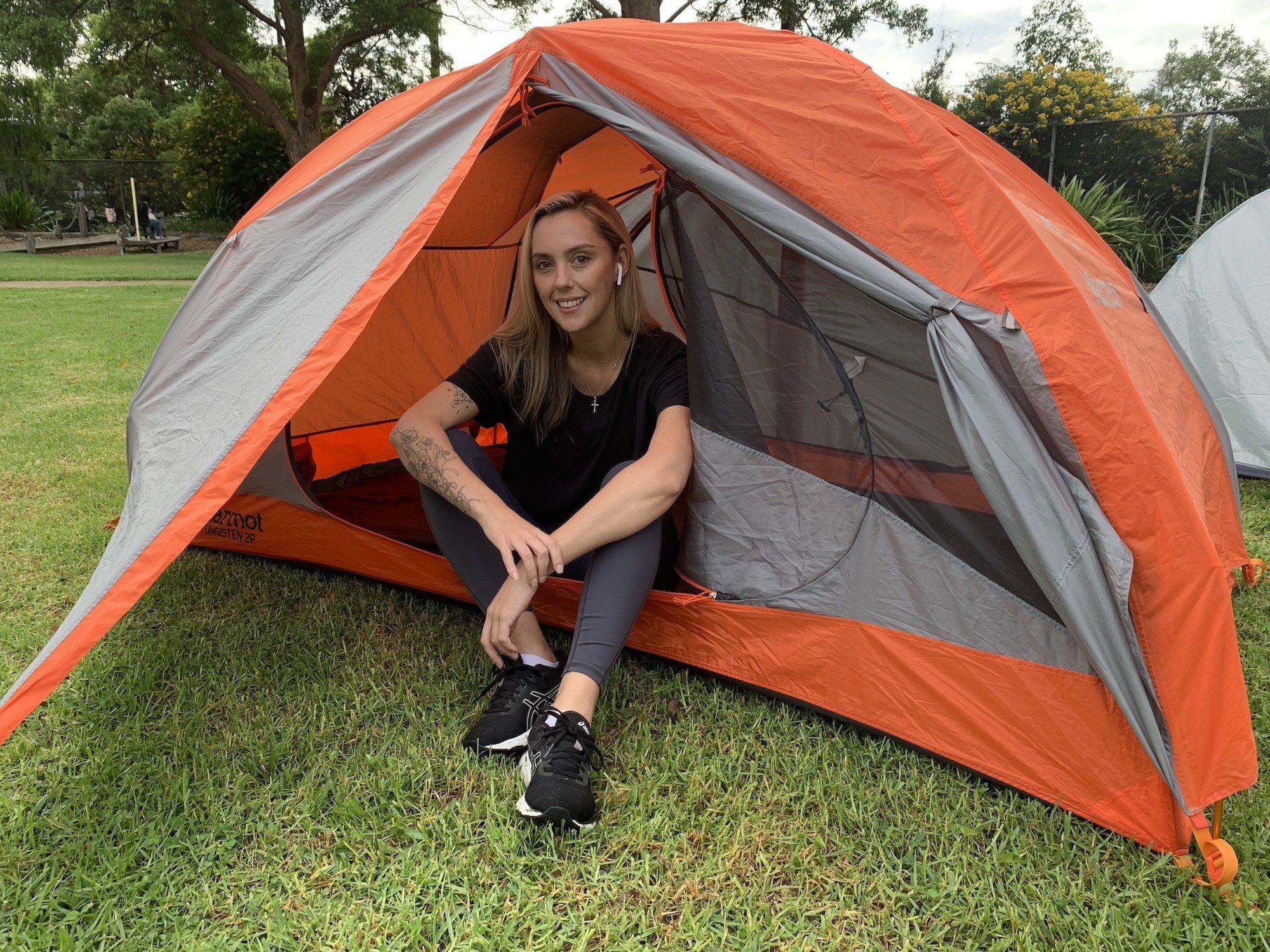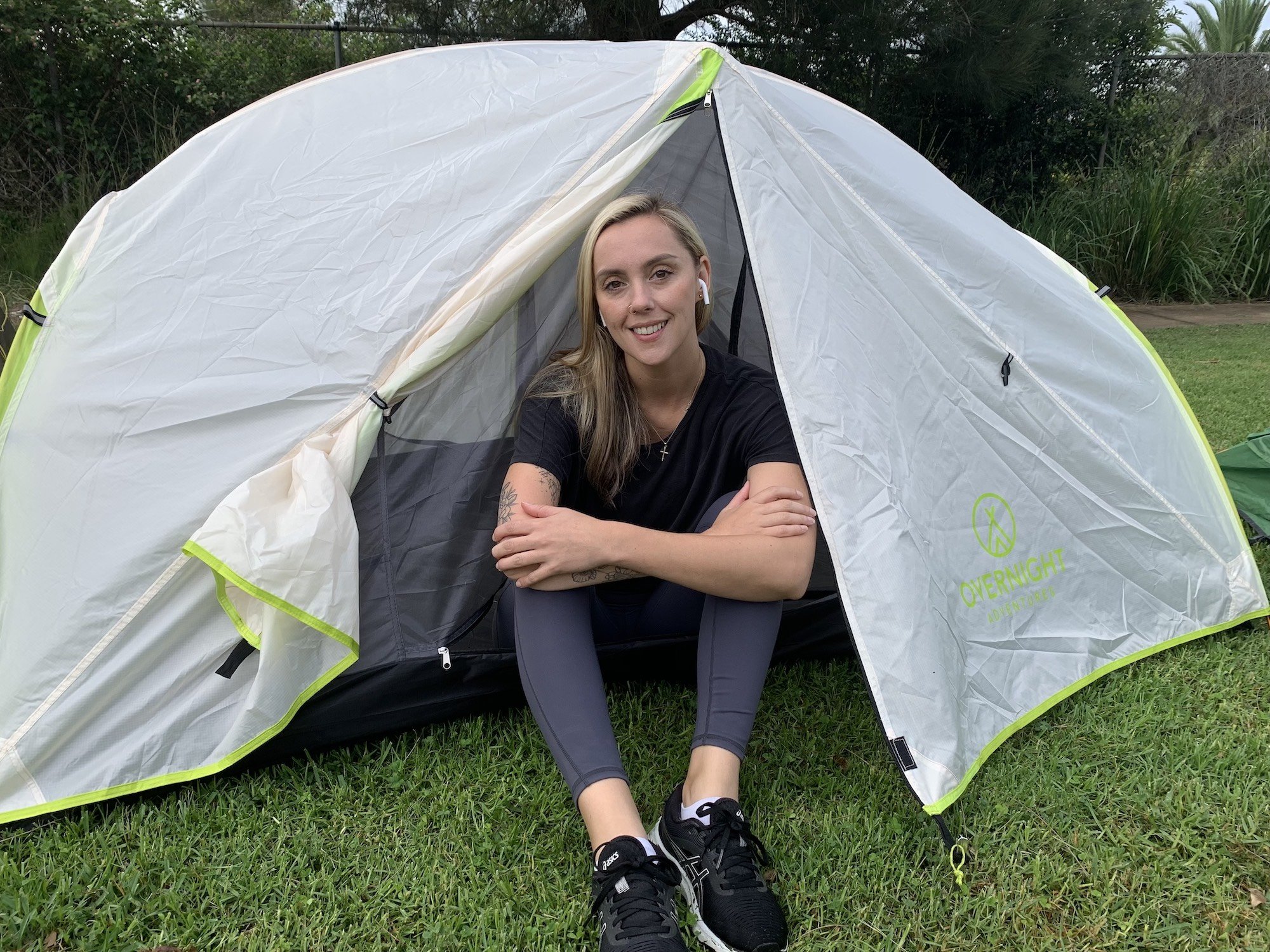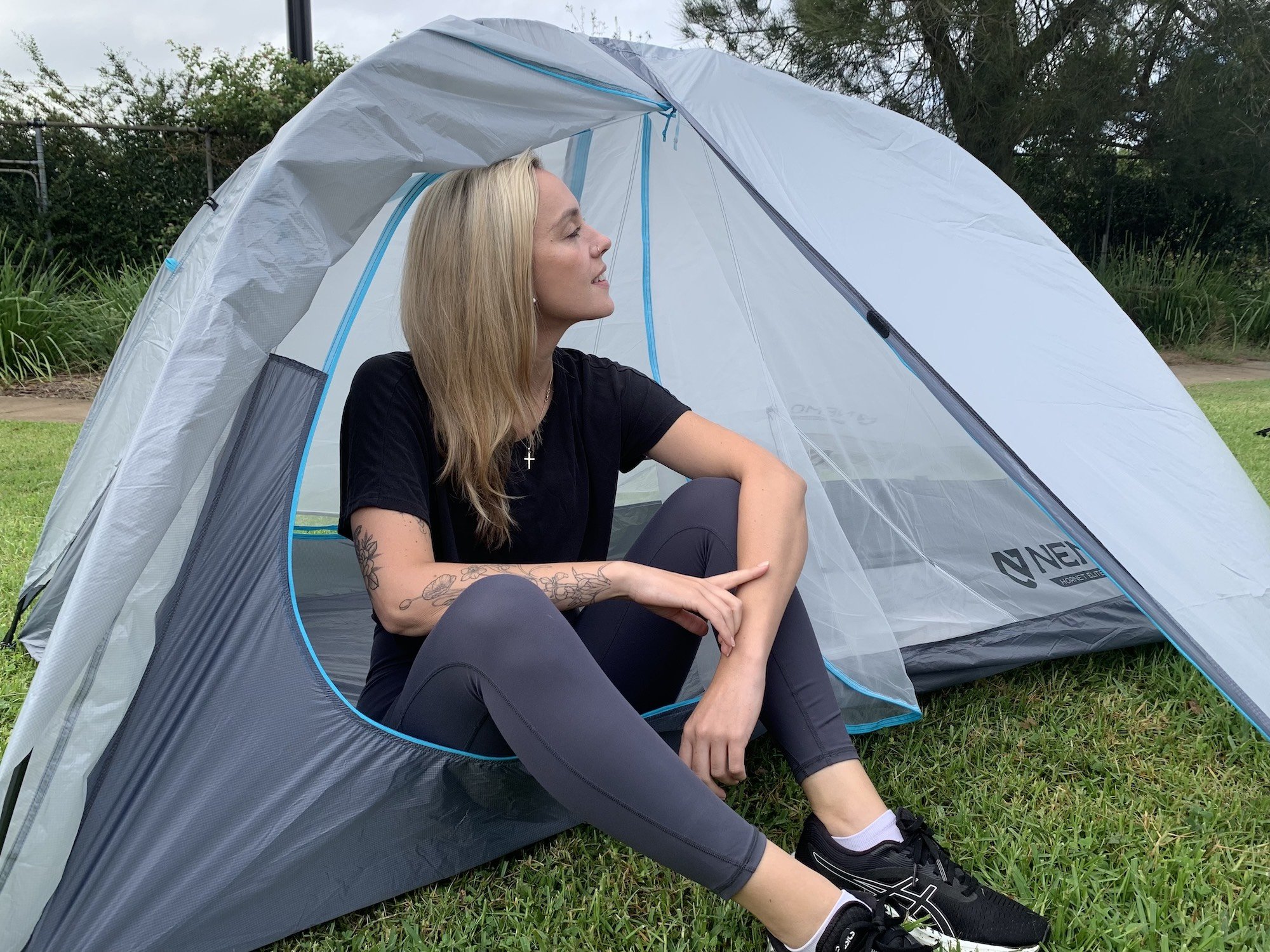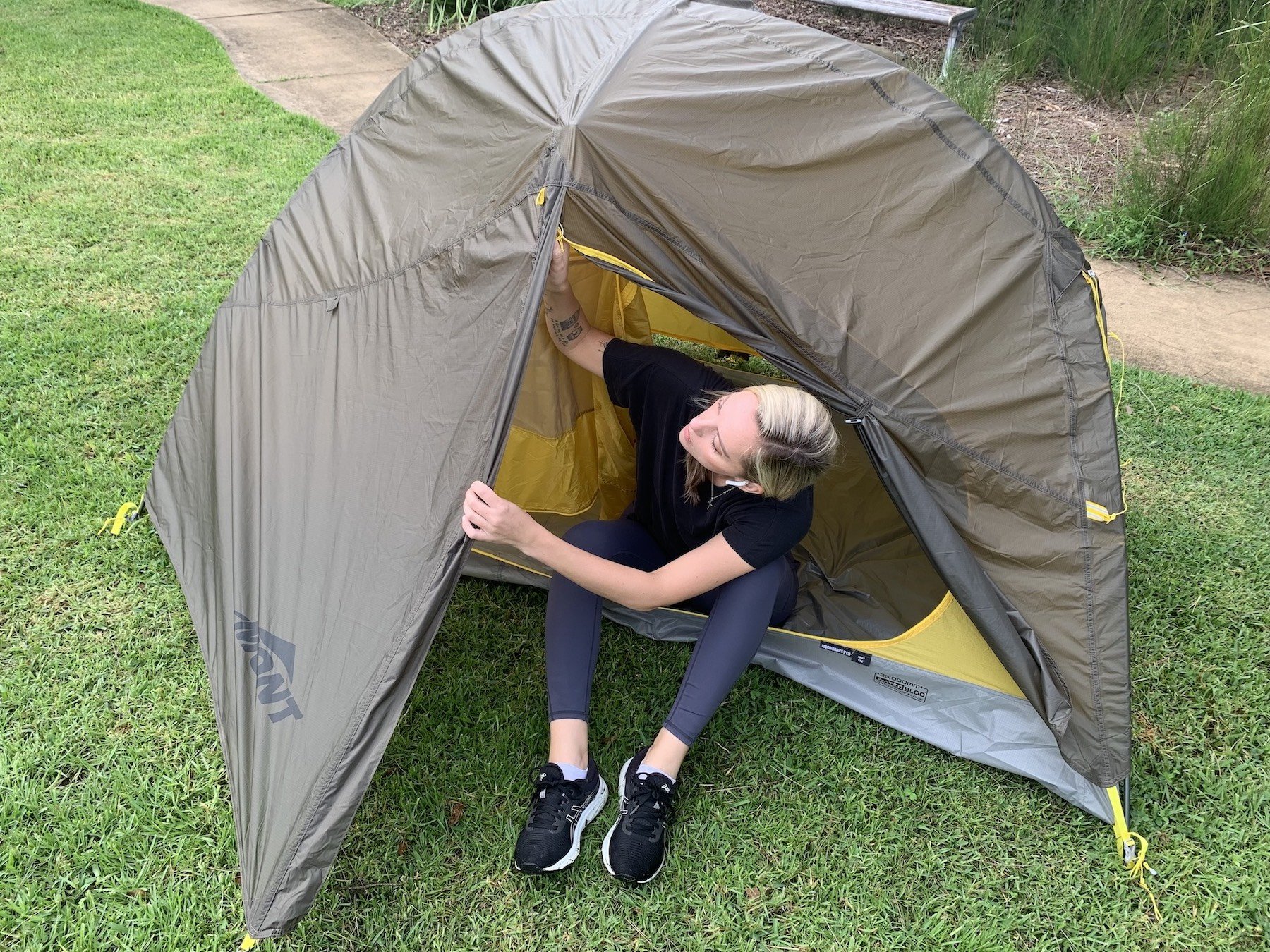Top 5 Best Hiking Tents Australia 2025
Lightweight. Waterproof. Comfortable. Easy setup.
Choosing the perfect hiking tent requires in-depth research, but at the end of the day, it comes down to those four essentials. There’s nothing more disappointing than finishing a long day hauling a heavy tent along the track to find it takes ages to set up (and it's raining), your sleeping mats barely fit, and you wake up in the middle of the night to a wet sleeping bag (did I mention it's raining?).
We’ve rounded up our favourite hiking tents that have been trail-tested by both beginners and experienced hikers, and stood up to the toughest conditions.
Know what you’re looking for? Get straight to it:
Looking for a complete set of hiking gear? Here's our list of the Best Sleeping Bags of 2025.
Hiking Tents Comparison
Compare the specs, watch our video review, or jump straight down to the hiking tent reviews Australia.
Watch our video review for a quick rundown of the top five:
Hiking Tent Reviews
#5: Vango Nevis 200 Tent
The Vango Nevis 200 is a budget-friendly, lightweight tent designed for backpackers and campers who are looking for something cheap and portability. While it has decent weather resistance and has a compact packed size, its limited interior space and tricky setup may deter those wanting comfort and convenience.
Summary
Open Size: 215 x 120 cm
Packed Size: 46 x 15 cm
Weight: 2.02kg
Approx Price: $229.95
Rating
Size/Weight: 8
Construction: 7
Features: 7
Ease of Setup: 7
Sleep Quality: 7
OVERALL: 7.2
Pros: Affordable, lightweight and compact, good waterproofing for its cost.
Cons: Cramped interior with limited headroom, single vestibule offers minimal gear storage, limited ventilation can lead to condensation.
Verdict: A budget-friendly tent that sacrifices comfort and space for affordability, making it a decent option for beginners or solo campers on short trips.
#4: Marmot Tungsten Tent
The Marmot Tungsten earns its place on our list for being a reliable, spacious and budget-friendly option. It offers excellent livability with a roomy interior and generous headroom, making it a standout for comfort. Double vestibules, internal storage pockets, and high privacy screens make it practical and well-suited for short hikes or camping trips. While it’s heavier than some ultralight models, its high-denier materials and solid aluminum poles ensure durability and great weather resistance. Perfect for those who value space and affordability, the Tungsten delivers dependable performance at a price that’s hard to beat.
Summary
Open Size: 224 x 137 cm
Packed Size: 62 x 15 cm
Weight: 2.4kg
Approx Price: $405.30
Rating
Size/Weight: 8
Construction: 8
Features: 9
Ease of Setup: 9
Sleep Quality: 8
OVERALL: 8.4
Where to get it:
Pros: The tent has a large living space.
Cons: It’s quite heavy for a backpacking tent and its size is a bit disappointing.
Verdict: The Marmot Tungsten is better suited for short trips and camping.
#3: OA Hiker Pro Tent
The OA Hiker Pro is a budget-friendly, high-quality tent that offers great value for money. Designed for hikers and campers who want a reliable shelter without breaking the bank, this tent combines durability, comfort and practicality. While it’s slightly heavier than some premium options, it’s made well and has some good features, making it a versatile choice for short trips.
Summary
Open Size: 210 x 135 cm
Packed Size: 48 x 15 cm
Weight: 2.2kg
Approx Price: $349.95
Rating
Size/Weight: 8
Construction: 9
Features: 9
Ease of Setup: 10
Sleep Quality: 9
OVERALL: 9.0
Where to get it:
Pros: Good materials and construction, spacious and comfortable interior, great value for money.
Cons: Only two internal pockets, heavier than other tents, snug fit for two people with wide sleeping mats.
Verdict: A durable, comfortable and feature-packed tent that offers great value for its price, making it a great choice for budget-conscious hikers and campers.
#2: Nemo Hornet Elite OSMO 2P Tent
The Nemo Hornet Elite OSMO is a standout in the ultralight tent category, designed for hikers and backpackers who are looking for weight savings above all else. Weighing just under 1kg, this tent is a marvel of lightweight engineering, making it an excellent choice for solo adventurers or couples willing to share a cozy space, however, its lightweight design comes with trade-offs in durability and weather resistance, which may limit its versatility in harsh conditions.
Summary
Open Size: 216 x 128 cm
Packed Size: 48 x 10 cm
Weight: 0.936kg
Approx Price: $919.95
Rating
Size/Weight: 10
Construction: 10
Features: 9
Ease of Setup: 10
Sleep Quality: 9
OVERALL: 9.6
Where to get it:
Pros: Extremely lightweight and compact, easy to set up and pack down, great ventilation.
Cons: Expensive for its size and durability, thin materials are prone to punctures and wear, not ideal for cold, windy or extreme weather conditions.
Verdict: An ultralight tent for nice weather camping, but it’s more suited for experienced hikers who are looking for minimalism.
#1: Mont Moondance 2 Tent
The Mont Moondance 2 is a well-regarded tent among Australian hikers, known for its durability, spacious interior and comfort. While it may not be the lightest option on the market, it strikes a balance between weight and livability, making it a versatile choice for both camping and multi-day hikes.
Summary
Open Size: 220 x 130 cm
Packed Size: 49 x 15 cm
Weight: 2kg
Approx Price: $939.95
Rating
Size/Weight: 9
Construction: 10
Features: 10
Ease of Setup: 10
Sleep Quality: 10
OVERALL: 9.8
Pros: Spacious, durable, easy set up and has great ventilation.
Cons: Fly zippers don’t run full-length, making access tricky, footprint sold separately, can be complicated pitching solo.
Verdict: For those willing to invest in a high-quality, versatile tent, the Mont Moondance 2 is an excellent choice.
Hiking Tent FAQs
What brand of tent is the best?
Determining the best tent brand often depends on personal preferences and specific needs. However, popular brands renowned for quality hiking tents include MSR, Mont, Big Agnes, Lightwave, The North Face, Kelty, Nemo and REI. Read our reviews and see why we scored the Mont Moondance 2 as one of the best hiking tents Australia.
How do I choose a hiking tent?
Consider factors like capacity (1-person, 2-person, etc.), weight, durability, weather resistance, ease of setup and price. Make sure it suits your how you intend to use it and matches the climate and terrain you'll be hiking and sleeping in. Some people may be willing to compromise on one aspect, such as weight or price, for more room or lightness, it just depends on what you’re looking for.
How heavy should a hiking tent be?
Ideally, a hiking tent should be lightweight, especially for backpacking trips. Tents under 1kg are considered ultra-lightweight and are preferred for their ease of carrying during long treks. In our list, we had no lightweight tents under 1kg, but we consider up to 2kg an ideal weight for both quality and comfort, both for trekking and sleeping.
What is the difference between a camping tent and a hiking tent?
Hiking tents are typically lighter, more compact and designed for portability, making them suitable for backpacking and trekking. Camping tents, on the other hand, may prioritise spaciousness and comfort over weight, as they're often used for car camping. We have only reviewed hiking tents in the list above.
How can you tell if a tent is good quality?
Look for features such as durable materials, sturdy poles, reinforced seams, waterproof coatings and positive reviews from reliable sources or fellow outdoor enthusiasts, or like our reviews above! Quality is all in the construction, but a higher quality tent often comes at the compromise of weight, such as in strong aluminium poles and waterproof or more durable materials, or price (eg. lightweight tents that use the latest material technologies are often much more expensive).
How heavy is too heavy for a backpacking tent?
Generally, a backpacking tent weighing over 2.5kg may be considered too heavy for extended treks, especially for solo hikers. Ultralight backpacking tents often weigh under 2kg to minimise the burden on hikers. The tents in our list above range from 0.9kg to 2.4kg.
How do hikers carry tents?
Hikers typically carry tents in their backpacks. Modern hiking tents are designed to be lightweight and compact, making them easy to pack along with other essential gear for the journey. If you’re hiking with a friend or partner, you can also split the tent parts between your packs to make the load lighter.
Is a bigger tent better?
The size of the tent depends on your specific needs. While a larger tent gives you more space and comfort, it may also be heavier and bulkier to carry. Think about your group size, how much gear you have with you that you need to store and your personal preferences when deciding on tent size.
Water & Outdoors reviews are written by our staff writers, who combined have over fifty years of experience on the water and outdoors. We may earn commissions if you choose to buy through a link you’ve clicked on our website, however this does not influence our reviews. For more information, please see our Editorial Policies.









